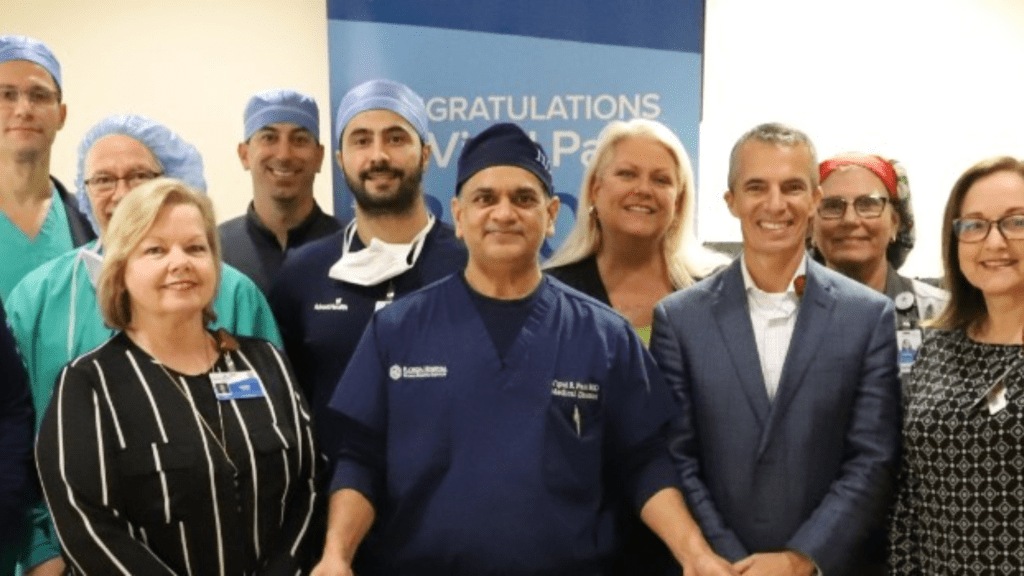An Indian-origin doctor, Dr Vipul Patel, who serves as the Medical Director of the Global Robotic Institute at Orlando’s Advent Health, performed a groundbreaking remote surgery on a cancer patient 7,000 miles away, ABC News reported.
The patient, Fernando da Silva, was diagnosed with prostate cancer in March and underwent surgery in June. Dr Patel removed part or all of da Silva’s prostate using transcontinental robotic telesurgery.
With this surgery, da Silva became the first human participant in a clinical trial approved by the US Food and Drug Administration (FDA) to test this new surgical technology. His successful surgery will help doctors serve patients better in remote areas.
How the surgery was performed
Dr Patel conducted the procedure using robotic surgical tools connected via high-speed fibre optic cables. He reported no perceptible delay between his actions and the robot’s responses.
“There was no perceptible delay in my brain,” Dr Patel told ABC News. While robotic surgeries have been done before, they typically require the surgeon to be in close physical proximity to the patient. This procedure changed that paradigm.
Had my team with the pateint: Dr Patel
Although Dr Patel operated from Florida, his medical team was physically present with the patient in Angola to provide support and intervene if necessary. “We made sure we had plan A, B, C, and D. I always have my team where the patient is,” he explained.
Dr Patel spent two years travelling the world researching and evaluating technologies capable of enabling successful long-distance robotic surgeries. The goal was not just technical achievement, but accessibility and equity in healthcare.
Prostate cancer is very prevalent in Africa. People either haven’t had it monitored well or haven’t been treated for it, The Independent reported.
Dr Patel sees this as more than just a technological victory. “It’s a small step for a surgeon, but a huge leap for healthcare,” he said, emphasising its enormous humanitarian implications.
People in remote areas could benefit tremendously from this, as remote interventions will help those patients who can’t reach hospitals in time.

